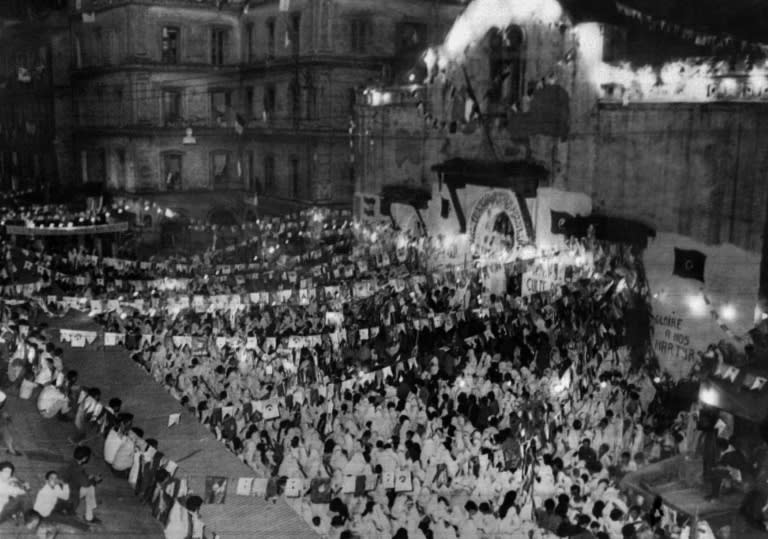Algeria celebrates Tuesday with great fanfare, including a military parade of unprecedented scale, the 60th anniversary of its independence after 132 years of French colonization, the memory of which still strains its relations with Paris.
After nearly eight years of war between Algerian insurgents and the French army, the guns fell silent on March 18, 1962 under the terms of the historic Evian Accords, paving the way for Algeria’s proclamation of independence on March 5 July of the same year, approved a few days earlier by 99.72% of the votes in a self-determination referendum.
Since Friday evening, the authorities have closed road traffic on a 16 km stretch, where the army has carried out final rehearsals in recent days before Tuesday’s military parade, the first in 33 years.
The closure to car traffic of this main access road to the center of the capital has caused huge traffic jams on the roads leading from Algiers to its eastern suburbs.
Several foreign guests, including Palestinian Presidents Mahmoud Abbas, Tunisian Kais Saied and Nigerien Mohamed Bazoum, are due to attend this military parade, which will be supervised by Head of State Abdelmadjid Tebboune.
– “Guilty” –
Independence was won after seven and a half years of war that left hundreds of thousands dead, making Algeria the only former French colony in Africa in the 1960s to break free by arms. under the supervision of France.
But 60 years after the end of colonization, the wounds remain raw in Algeria as France rules out any “repentance” or “apologies”, although French President Emmanuel Macron has endeavored since his election to soothe memories with a series of symbolic gestures.
“We cannot forget or erase, by any means whatsoever, the human genocide, the cultural genocide and the genocide of identity of which colonial France remains guilty”, thus affirmed Salah Goudjil, president of the Council of the Nation, the upper house of parliament, and veteran of the war of independence, in an interview Monday in the newspaper l’Expression.
In March, Abdelmadjid Tebboune declared that the memorial file should be approached in a “fair” manner, adding that the “crimes” of French colonization could not be time-barred.
The bilateral relationship seemed to have bottomed out in October when Mr Macron claimed that Algeria had been built after independence on “a memory rent”, maintained by “the politico-military system”, arousing ire from Algiers.
But relations have gradually warmed in recent months and Mr Macron and his Algerian counterpart Abdelmadjid Tebboune expressed their desire to “deepen” them in a telephone interview on June 18.
On Monday evening, the French presidency announced that Emmanuel Macron had sent a letter to his Algerian counterpart on the occasion of the 60th anniversary of independence, in which he called for “strengthening the already strong ties” between the two countries.
“He reiterates, moreover, his commitment to continue his process of recognition of the truth and reconciliation of the memories of the Algerian and French peoples”, adds the Elysee Palace which specifies that a wreath will be deposited Tuesday in his name at the National Memorial. of the Algerian war, in Paris, in homage to the victims of the massacre of Europeans in Oran, on July 5, 1962.
– “Instrumentation” –
“Relations between the power system in Algeria and official France have been punctuated by crises and pseudo-reunions since the country’s independence”, underlines the president of the opposition party Rally for Culture and Democracy (RCD). , Athmane Mazouz.
“At the current stage, no one can bet a penny to talk about rebuilding. The instrumentalization of this relationship on one side or the other does not escape anyone,” he adds.
Domestically, the government took advantage of the anniversary to try to ease tensions, three years after being shaken by the Hirak pro-democracy demonstrations.
In May, Mr. Tebboune launched an initiative to break the political immobility by receiving in turn several leaders of political parties, including the opposition, and officials of trade unions and employers’ organizations.

